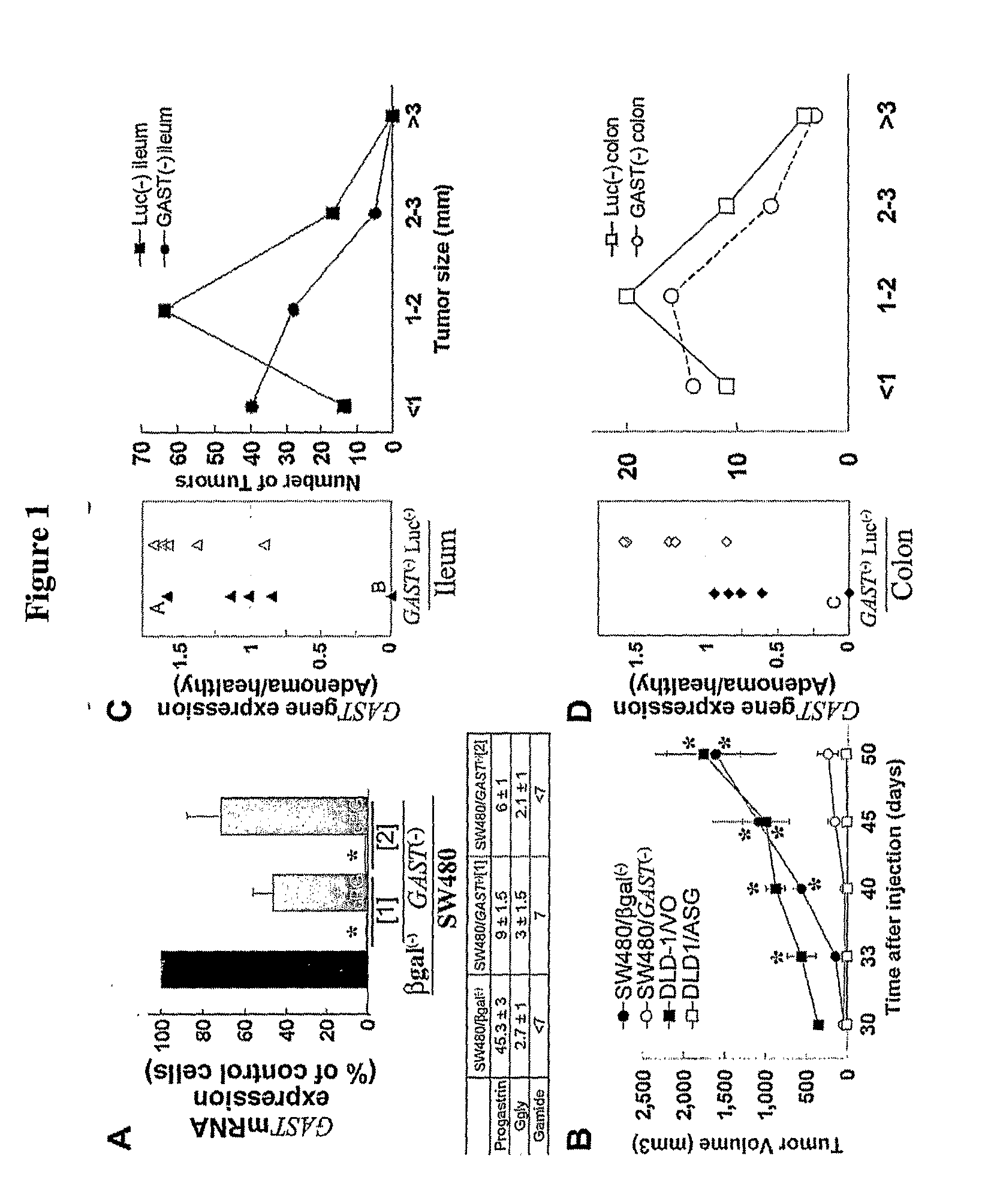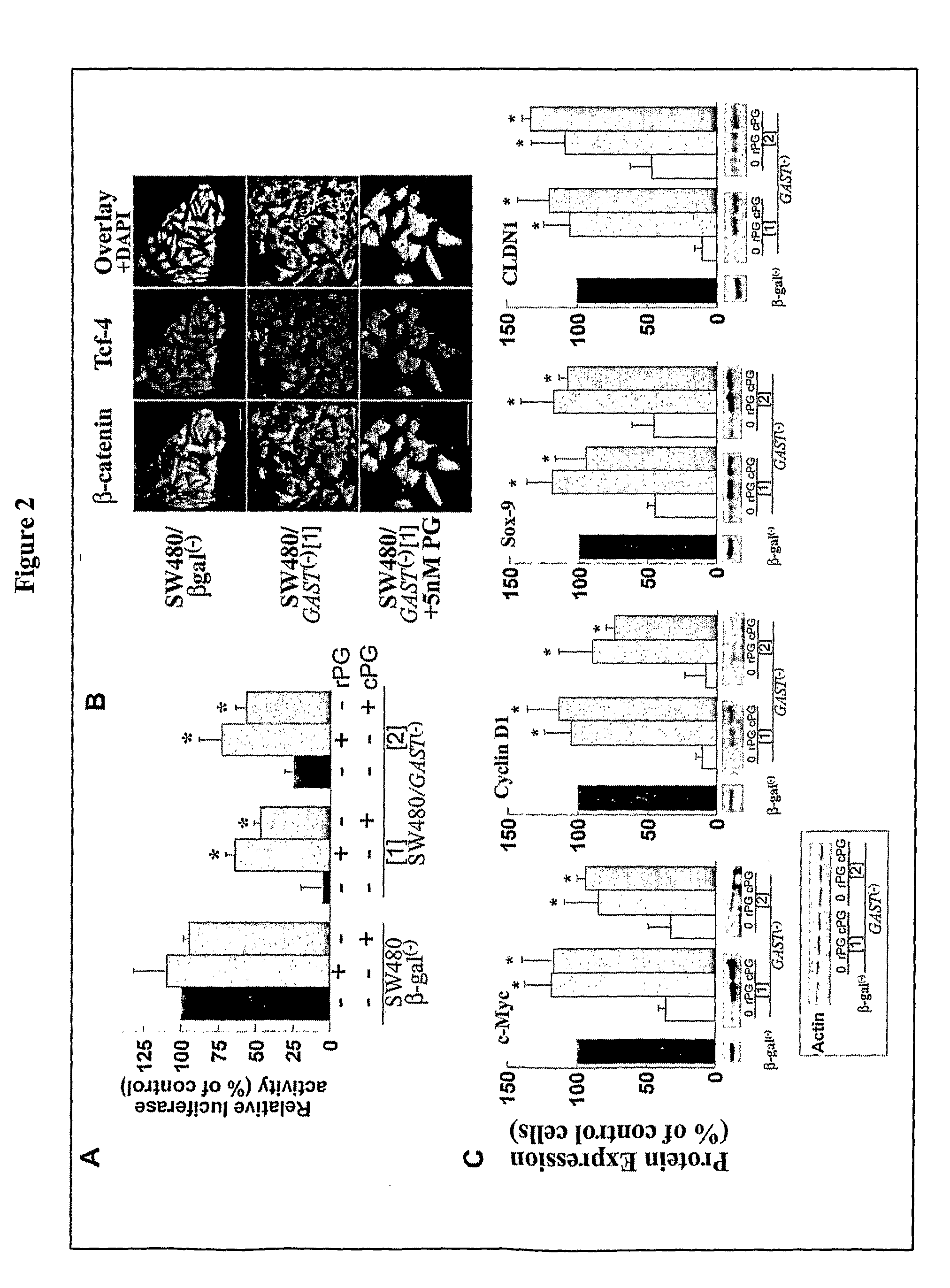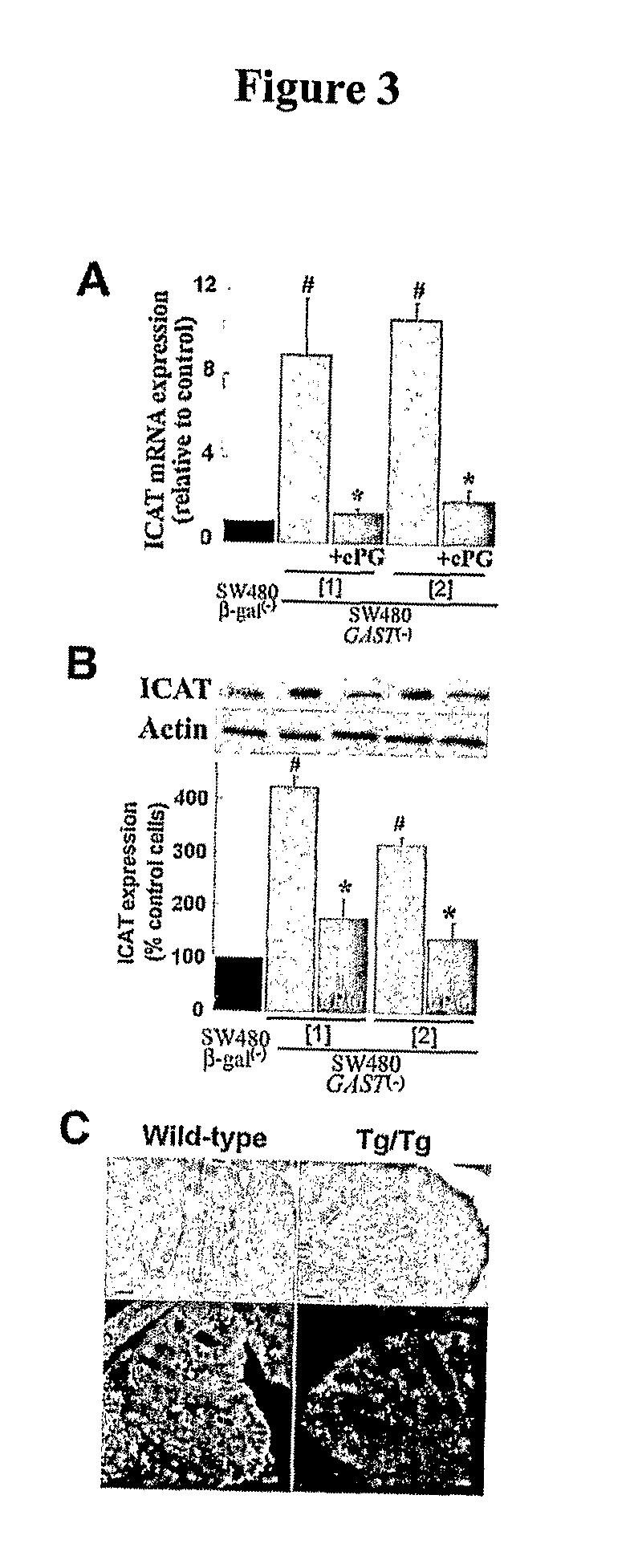Inhibitors of progastrin-induced repression of icat for treating and/or preventing colorectal cancer, adenomatous polyposis or metastasis displaying progastrin-secreting cells and cells in which the beta-catenin/tcf-mediated transcriptional pathway is constitutively active
- Summary
- Abstract
- Description
- Claims
- Application Information
AI Technical Summary
Benefits of technology
Problems solved by technology
Method used
Image
Examples
example 1
[0078]In the following description, all molecular biology experiments for which no detailed protocol is given are performed according to standard protocol.
SUMMARY
[0079]Background and aims: Aberrant activation of the β-Catenin / Tcf-4 transcriptional complex represents an initiating event for colorectal carcinogenesis, shifting the balance from differentiation towards proliferation in colonic crypts. Here, we assessed whether endogenous progastrin, encoded by a target gene of this complex, was in turn able to regulate. β-Catenin / Tcf-4 activity in APC-mutated cells, and we analyzed the impact of topical progastrin depletion on intestinal tumor growth in vivo.
[0080]Methods: Stable or transient RNA silencing of the GAST gene was induced in human tumor cells and in mice carrying a heterozygous Apc mutation (APCΔ14), which overexpress progastrin but not amidated or glycine-extended gastrin.
[0081]Results: Depletion of endogenous progastrin production strongly decreased intestinal tumor growt...
example 2
Selective Antibodies Against Progastrin Reverse the Repression of Progastrin on ICAT Expression and Induce a Decrease in c-myc Expression
[0138]Introduction
[0139]The present example describes the characterisation of two independently generated polyclonal antibodies against progastrin, aiming to demonstrate that they selectively recognise the full-length progastrin (1-80) peptide but not the processed peptides potentially present within human blood, such as amidated gastrin, glycine-extended gastrin, and the six amino-acid C-terminal flanking peptide (CFTP). This characterisation was performed in vitro using an ELISA assay.
[0140]The second step described hereunder was the validation of the proof of concept that the effects of progastrin on ICAT expression and on beta-catenin / Tcf4 activity can be blocked by a selective antibody. In order to demonstrate this so-called neutralising activity of the progastrin antibodies, we used human SW480 colorectal tumor cells, which bear a mutation in...
PUM
| Property | Measurement | Unit |
|---|---|---|
| Volume | aaaaa | aaaaa |
| Volume | aaaaa | aaaaa |
| Volume | aaaaa | aaaaa |
Abstract
Description
Claims
Application Information
 Login to View More
Login to View More - R&D
- Intellectual Property
- Life Sciences
- Materials
- Tech Scout
- Unparalleled Data Quality
- Higher Quality Content
- 60% Fewer Hallucinations
Browse by: Latest US Patents, China's latest patents, Technical Efficacy Thesaurus, Application Domain, Technology Topic, Popular Technical Reports.
© 2025 PatSnap. All rights reserved.Legal|Privacy policy|Modern Slavery Act Transparency Statement|Sitemap|About US| Contact US: help@patsnap.com



